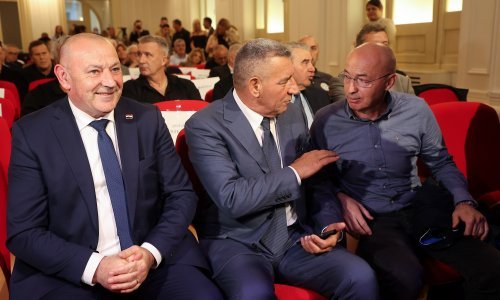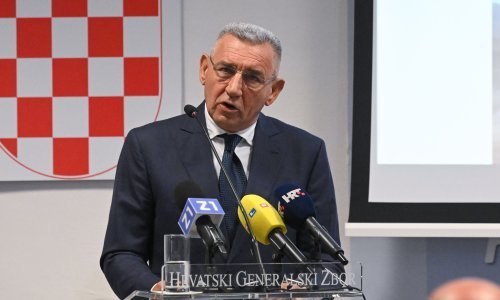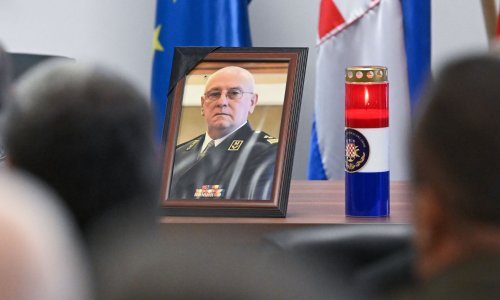The defence team representing Croatian general Ante Gotovina said at an appeal hearing before the International Criminal Tribunal for the former Yugoslavia (ICTY) in The Hague on Monday that the Trial Chamber had arbitrarily determined a 200 metre range of error for the legality of artillery shelling and that the rule was invented so that the prosecution would not have to prove that the targets of artillery strikes were indeed civilian targets.
The defence presented for more than an hour and a half its arguments to the Appeals Chamber to overturn the Trial Chamber's judgement, which sentenced Gotovina to 24 years in prison, and to acquit their client.
The arguments were presented by defence attorneys Gregory Kehoe, Luka Misetic and Payam Akhavan, who focused on questions that had been addressed by the Appeals Chamber to both the defence and the prosecution on April 15 -- whether the Trial Chamber erred in applying a 200 metre range of error in analysing the artillery shelling; whether the Trial Chamber's conclusions regarding the impact sites should be upheld if its application of the 200 metre range of error is deemed erroneous; whether the Trial Chamber's findings that illegal artillery attacks took place should be upheld if its conclusions with respect to impact sites are deemed erroneous; and whether the Trial Chamber's finding that a joint criminal enterprise existed should be upheld if its finding that illegal artillery attack took place is deemed erroneous.
The defence attorneys pointed out that there had been no civilian casualties during the Croatian artillery attacks against the Serb paramilitary forces.
A total of 1,200 shells fell on four towns -- Knin, Gracac, Obrovac and Benkovac, and there were no civilian casualties or destruction of civilian buildings. If the aim was to intimidate the Serb civilians in order to drive them away from that area, it could be inferred that the Croatian army was totally incompetent, which is absurd, Akhavan said.
The defence lawyers said that if the Appeals Chamber dismissed the 200 metre rule it should also dismiss the defined artillery impact sites.
If the 200 metre rule falls, then all points of the judgement must also fall, Misetic said.
The defence said that the conclusion regarding the existence of a joint criminal enterprise, which according to the the Trial Chamber's ruling was agreed at a meeting of the Croatian political and military leadership on the island of Brijuni, was based on the conclusion about illegal artillery strikes and not based on what had been said at that meeting.
After the defence, the prosecution are also to present their arguments, while defence counsel for General Mladen Markac will speak in the afternoon.
On 15 April 2011, the Trial Chamber sentenced Gotovina to 24 years and Markac to 18 years in prison and acquitted General Ivan Cermak of responsibility for war crimes committed by Croatian forces during and in the wake of Operation Storm which crushed a Serb insurgency in central and southern Croatia in the summer of 1995.

































